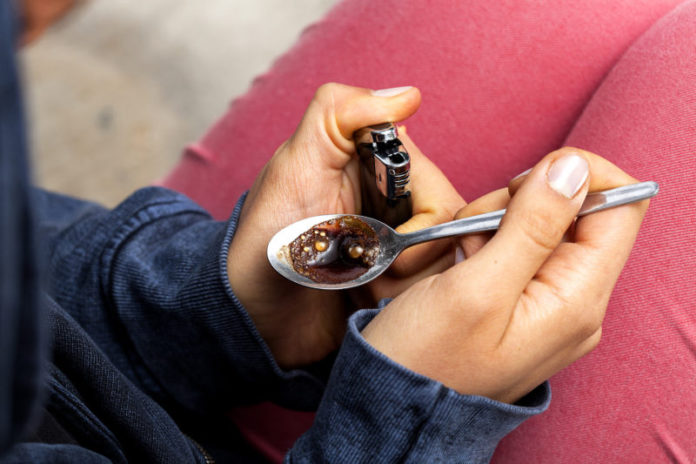Quitting heroin is never a bad idea, whether it has been used occasionally or regularly. Heroin often causes blood-borne diseases which can further complicate a user’s life. When an opiate leaves the body, the user tends to undergo withdrawal symptoms; the level of severity varies from user to user.
Usually, the symptoms of withdrawal begin 6 to 12 hours after the last use, reach their peak within 1 to 3 days and then slowly decrease. Some of the worst cases lead to post acute withdrawal syndrome (PAWS), which can last for months after quitting.
SYMPTOMS OF HEROIN WITHDRAWAL
As heroin helps to relieve pain, users find it hard to stop and also develop fears about the symptoms they could go through if they stop. Symptoms of withdrawal start a few hours to a day after use of the drug stops. The symptoms include:
- Intense cravings for heroin
- Irritability
- Profuse sweating (not explained by environment or physical activity)
- Abdominal pain
- Chills
- Bone aches and severe muscle spasms
- Anxiety
- Vomiting and nausea
- Diarrhea
- Constipation
- Intense cramping in limbs, resulting in “kicking”
- Depression
- Crying
- Fever
- Insomnia
- Running nose
- Cold sweats
A user undergoing symptoms of withdrawal due to extended dependence on heroin is at risk of complicating medical conditions that can lead to death.
SIDE EFFECTS
Medical complications can occur when there is a withdrawal from heroin and should be treated immediately once identified. The side effects of heroin detox includes:
- Fever which could already be present from withdrawal symptoms alone. Various causes should be considered, especially with IV users, since HIV, abscesses, viral hepatitis, pneumonia and infected injection sites require medical attention.
- Anxiety disorders, particularly panic anxiety, also show a rise in intensity during the withdrawal.
- Heart issues may worsen by the increase in pulse, blood pressure and sweating.
- Conditions relating to pain could get worse when trying to withdraw, this is caused by a reduced pain threshold and absence of analgesia (pain relief) caused by the use of heroin. This is common with severe back pain and dental pain.
- Chronic stomach issues like diarrhea or vomiting can lead to dehydration or electrolyte imbalance.
HEROIN DETOX TREATMENT
In order to start detox, the user has to be determined to stop using heroin and be ready to go through the process and bear the physical symptoms. Medical assistance is available to help the user during the process, considering the symptoms could become very intense and the side effects can force a relapse.
Withdrawing from heroin alone can be hard and dangerous. Therefore, the treatment involves counseling, medications and support.
Withdrawal can be achieved either in the medical facility or at home.
Possible medications that can be administered to help the side effects include:
- Methadone: helps to ease the symptoms of withdrawal and also assists with detox. It is usually used as long-time medicine maintenance for opioid dependence. The dose is slowly reduced with time after the period of maintenance. This helps lessen the intensity of the symptoms of withdrawal. It can be used for years.
- Clonidine: assists in the reduction of anxiety, muscle aches, agitation, running nose and sweating. It does not help in the reduction of cravings.
- Buprenorphine: this can help in the detox period. It can also be used like methadone as a long-term repair. It can be given with Naloxone, which prevents misuse and dependence. It treats opiate withdrawal.
Attaining these medications is only one reason to consider getting a detox clinic during the withdrawal process. There would be professionals available to help monitor the intensity of the effects, help out and give the required medications. For instance, some users could be given oral fluids, mostly fluids containing electrolytes, or some may need need IV therapies. Going through such a painful process alone could be difficult and may lead to a relapse if the symptoms become unbearable.
The approval of a physician is always advised before going ahead with a home detox. A medical professional can suggest the best options available: whether to go through cold turkey or slowly reduce the dosage. Every user needs a customised detox programme because every user has different levels of dependency as well as length of usage. Quitting instantly is not advised as this can lead to cravings and possible overdose. Having support from close friends and a group of sober people is important all throughout the process.
Article Submitted on behalf of drugrehab-plymouth.uk and alcoholrehab-plymouth.uk









